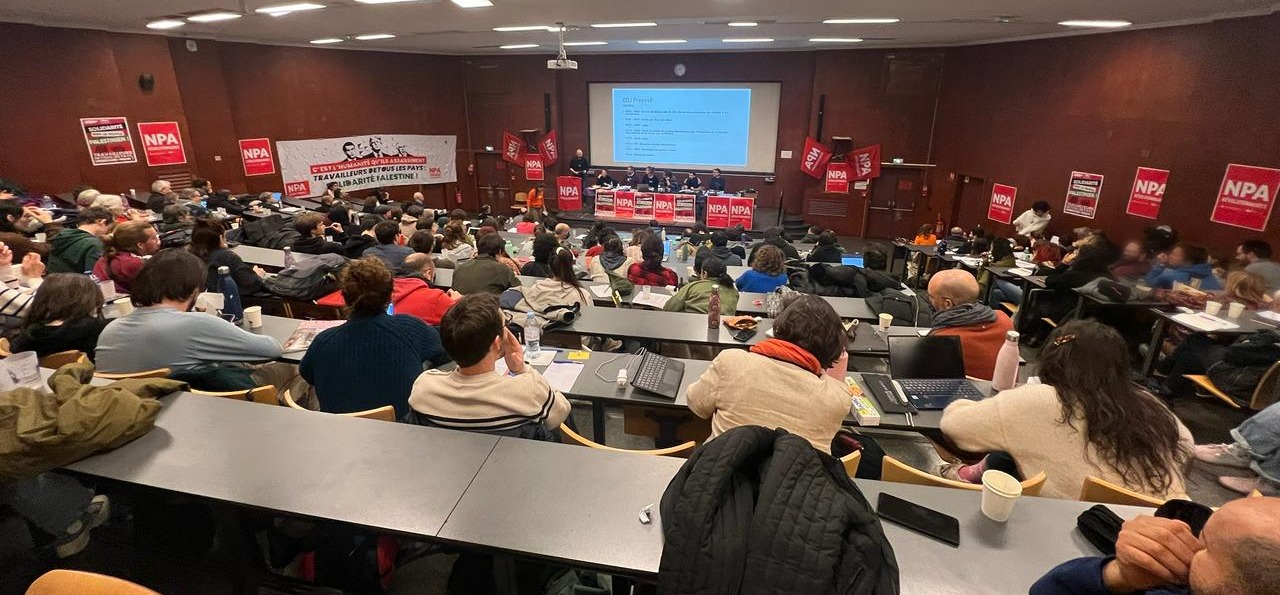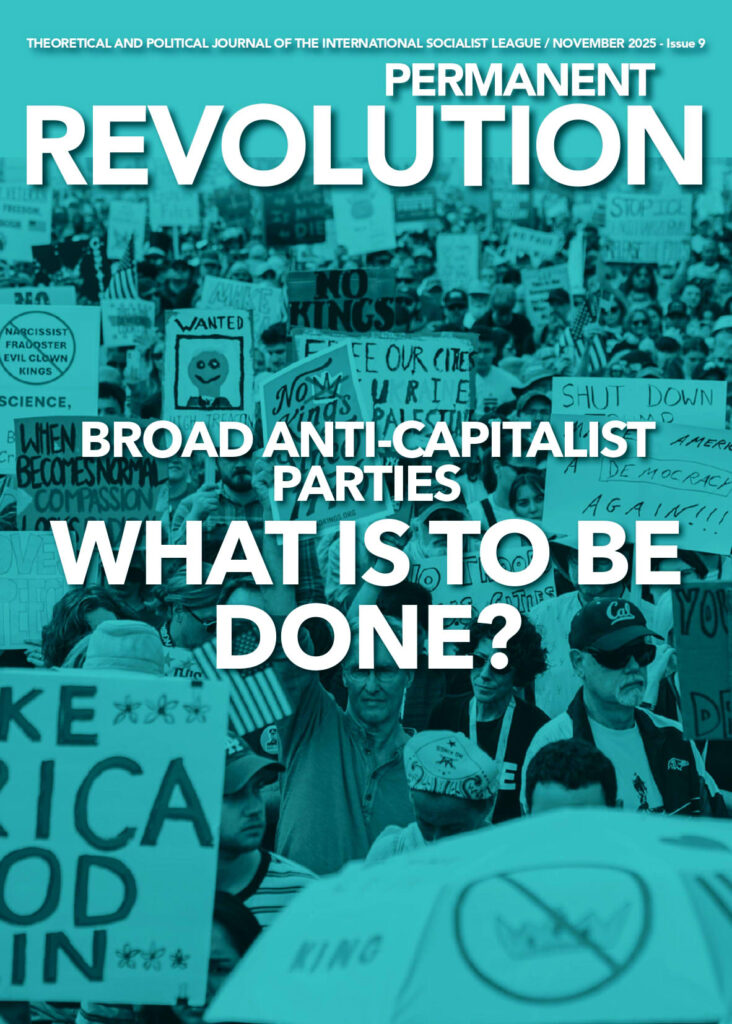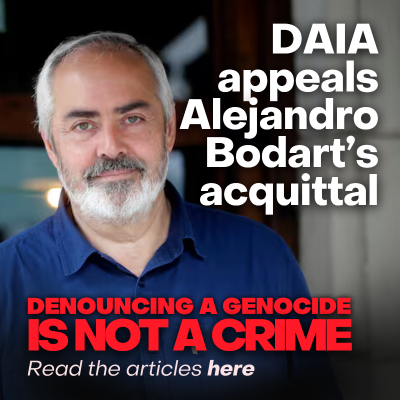By Hugo Tortorissi
Automatically translated by AI
The first congress of the Nouveau Parti Anticapitaliste – Révolutionnaires was held in Paris from 31/1 to 2/2. The result of the break-up of the former NPA, delegates representing some 800 militants spent three days debating the new organization’s balance sheet, an international focus and a focus on France, as well as aspects of orientation.
Comrades from LIS, MAS Portugal, OTI and L5I took part in the two open sessions, along with other groups friendly to the organizers. Greetings were extended by Lotta Comunista from Italy and Lutte ouvrière from France.
Three platforms were presented. Platform #1, Unité des révolutionnaires, the result of the merger of the l’Étincelle and Anticapitalisme et révolution (A&R) currents, won over 80% of the vote. Platform #2, Pour un pôle démocratique des révolutionnaires, received the second most votes. #3, led by comrades from Socialisme ou barbarie, the largest minority, finally withdrew from the Congress and announced its separation from the NPA-R.
The Congress noted very significant organizational progress. The remaining challenge is to consolidate the party and the new leadership without sidestepping the debate on all the issues that were not discussed before the merger of the two main tendencies and on which there are divergences.
The majority’s decision not to address them, and the polarization between the different platforms, did little to enrich the political debate. The positions expressed in the documents ended up being reaffirmed. It was not possible, for example, to discuss the most important events shaking the world or the changes accompanying Trump’s victory. Or how to deal with the rise of the far right, what policy to follow in the face of imperialism’s plans in Ukraine, or what the strategic position of revolutionaries in Palestine should be. Nor was there any discussion of the political crisis shaking France and the European community as a whole. The Congress had more of a trade-union bias, revealing the organization’s involvement in struggles, but with no clear link to political proposals.
It will be up to the party’s new leadership to overcome these weaknesses and make further progress towards becoming one of the most important parties on the French far left.
The Congress ratified by a large majority the orientation expressed in platform no. 1 of bringing together at international level the organizations closest to l’Étincelle and AetR in Spain, Germany, Greece and the United States, with whom they approved the realization of a closed camp next summer. At national level, the tendency to conclude an electoral agreement with Lutte Ouvrière, which rejects this proposal, was reaffirmed. An important point of discussion was the reaffirmation of the importance of the third Internationalist Meeting, which, unlike those in Milan, will be held this year in Paris from May 16 to 18, and in which the LIS will participate with a large delegation.
LIS contributions to the Congress
The LIS comrades, who have been NPA-R militants since before the split from the old NPA in 2022, supported platform #1 organizationally and presented two texts with their contributions and the reasons why they would abstain from voting on the political material presented.
At the international level, the most important differences were with the campist positions that have arisen since Platform No. 2, but it was also proposed to overcome the ambiguity of the Platform No. 1 document regarding the Russian invasion of Ukraine, at a time when imperialism is on the verge of colluding in overriding the Ukrainian people’s right to self-determination.
With regard to Palestine, where there was a broad consensus to continue developing solidarity with Gaza and condemnation of the Zionist state of Israel, the contribution made concerned the need to propose a revolutionary solution to dismantle the genocidal state and achieve a single, secular, non-racist, democratic and socialist Palestine, from the river to the sea. All this within the strategic framework of promoting a free federation of socialist republics for the Middle East, which also challenges fundamentalist Islamic leadership, including that currently ruling Syria, for which it is essential to help build strong revolutionary parties in the region.
With regard to the rise of the far right and the fight against this anticipated expression of the barbarism to which capitalism leads, our comrades stressed the need to promote ideological debate as well as the development of a united front policy, understood as a tactic that combines the requirement for reformist and bureaucratic leaderships to mobilize together against the far right and, at the same time, confront its populist front, from a position of class independence. To achieve this, it is necessary to emphasize the need for broad unity between the far left and independent activism, without focusing politics solely on Lutte Ouvrière, generating exaggerated expectations in this sectarian organization that can disarm militancy.
On an international level, we agree to take initiatives such as internationalist meetings with organizations like Lotta Comunista, although there are differences of principle, which are not limited solely to national struggles and the right of oppressed peoples to self-determination. What we consider wrong is to believe that we can go beyond ad hoc agreements and create a revolutionary pole with them.
There was consensus on the following points: promoting and uniting workers’ and social struggles and the general strike movement; denouncing the Macron government, the Rassemblement National (RN), the Nouveau Front Populaire (NFP) and the union bureaucracy; and carrying out anti-capitalist, anti-imperialist and revolutionary propaganda. But, faced with the scale of the French political crisis, our comrades felt that this was not enough as a general political orientation, as it did not formulate a transitional program built around the strategy of seizing political power by the working class and its allies. That is, with transitional slogans for breaking with the capitalist system (sliding wage scale, distribution of working hours, nationalization with workers’ control, etc.). And with proposals for workers’ government, an alternative regime to the institutionalism of bourgeois democracy and the Fifth Republic, the implementation of an emergency economic plan and the fight for a socialist system.
All these contributions have been presented with the aim of opening up debate and strengthening the new political formation, which we hope will become the fundamental political tool of the French working class and youth.





